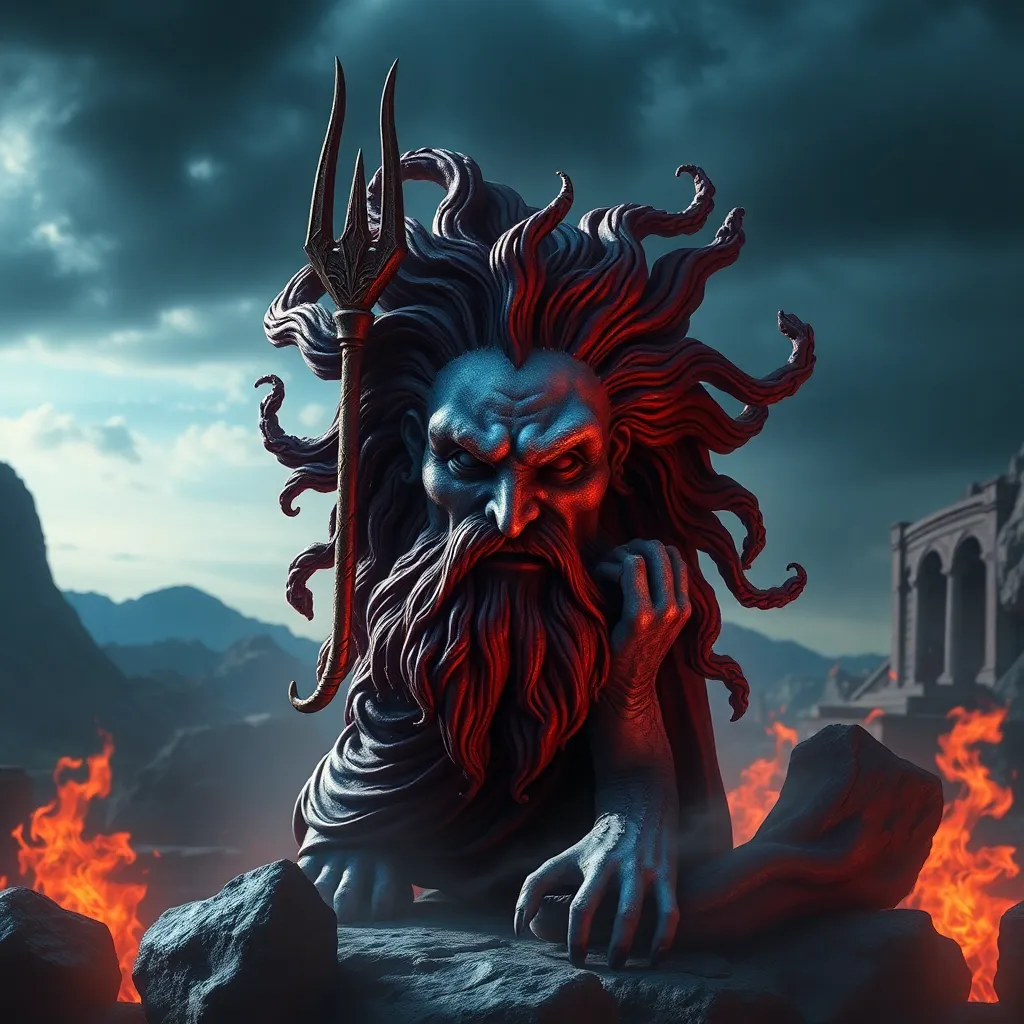Hades and the Role of Fate in Greek Tragedy
I. Introduction
Greek tragedy is a form of drama that emerged in ancient Greece, characterized by its serious themes and exploration of human suffering. It often depicts the struggles of noble characters who face insurmountable challenges, ultimately leading to their downfall.
At the heart of many Greek tragedies is Hades, the god of the Underworld, who plays a central role in the narratives surrounding death, fate, and the afterlife. Hades is not merely a figure of terror but a complex character that embodies the inevitability of fate.
Fate, or Moira, is a crucial element in Greek literature, shaping the actions and destinies of characters. The intertwining of Hades and fate provides a profound commentary on human existence and the powerlessness of individuals against the forces that govern their lives.
II. Hades: The God of the Underworld
Hades, the brother of Zeus and Poseidon, is often misunderstood as a malevolent deity. In reality, he governs the realm of the dead, ensuring the proper order of the afterlife. His domain is not a place of punishment but a necessary aspect of the cosmic balance.
Hades’ role in the afterlife is significant, as he oversees the souls of the deceased and ensures their passage into the Underworld. He is often accompanied by his three-headed dog, Cerberus, who guards the gates of the Underworld to prevent the escape of souls.
In Greek tragedy, Hades symbolizes the inescapable nature of death and fate. His presence serves as a reminder of mortality and the ultimate consequences of human actions.
III. The Concept of Fate in Greek Tragedy
In ancient Greek belief, fate (Moira) was considered an unavoidable force that dictated the course of human lives. It was believed that each person had a specific destiny, predetermined by the Fates, the three sisters who spun, measured, and cut the thread of life.
The relationship between fate and free will is a central theme in Greek tragedies. While characters often strive to change their fates, they frequently find themselves trapped by the very destinies they seek to evade.
Key playwrights such as Aeschylus, Sophocles, and Euripides explored these themes, presenting complex narratives that challenge the characters’ understanding of fate and their roles within it.
IV. Hades and Fate in Major Tragic Works
A. “The Oresteia” by Aeschylus
Aeschylus’s “The Oresteia” trilogy delves into the curse of the House of Atreus, where fate plays a pivotal role. The characters are ensnared in a cycle of violence and retribution, with Hades looming as the ultimate destination for those who succumb to their tragic flaws.
B. “Oedipus Rex” by Sophocles
In “Oedipus Rex,” the protagonist Oedipus learns that he is fated to kill his father and marry his mother. Despite his attempts to avoid this destiny, he ultimately fulfills the prophecy, showcasing the inescapability of fate and its connection to Hades.
C. “The Bacchae” by Euripides
Euripides’ “The Bacchae” explores the tension between divine will and human action. The character of Pentheus faces the consequences of his hubris and refusal to acknowledge the divine, leading to his tragic end and descent into Hades.
V. The Characterization of Fate through Hades
Hades serves as a representation of inevitable destiny, embodying the ultimate fate that awaits all mortals. His characterization in tragedies emphasizes the futility of resisting fate and the inevitability of death.
Many tragic characters grapple with their fates, often demonstrating a struggle against the forces that seek to define their lives. This struggle highlights the moral implications of their choices and the consequences that follow.
The portrayal of characters facing their fates invites audiences to reflect on the nature of destiny and the human experience of suffering and loss.
VI. The Influence of Hades on Tragic Outcomes
Hades profoundly shapes the destinies of key characters in Greek tragedies. His association with death and the afterlife serves as a constant reminder of the ultimate consequences of human actions.
Prophecy also plays a crucial role in these narratives, often intertwining with Hades’ influence. Characters are frequently confronted with foretellings of their deaths or fates, leading them to actions that inadvertently fulfill those predictions.
The impact of fate on the audience’s perception is significant, as it evokes a sense of inevitability and reflection on the nature of human existence.
VII. Modern Interpretations of Hades and Fate
Contemporary adaptations of Greek tragedies continue to explore themes surrounding Hades and fate, resonating with modern audiences. These adaptations often reinterpret the characters and their struggles in light of contemporary issues.
The relevance of Hades and fate in modern storytelling remains profound. Authors and filmmakers frequently draw upon these themes to examine the complexities of human nature and the challenges of free will.
Psychological interpretations of fate in character development allow for deeper explorations of motivation, choice, and consequence, enriching the narratives and their impact on audiences.
VIII. Conclusion
Hades stands as a significant figure in Greek tragedy, representing the inescapable nature of fate and the reality of death. His influence shapes the narratives of numerous tragic works, underscoring the complexity of human experience.
The enduring legacy of fate as a theme in literature invites continual reflection on the human condition, exploring the interplay between destiny and choice.
In the grand tapestry of Greek mythology, the relationship between Hades, fate, and human experience remains a powerful testament to the struggles inherent in existence.




